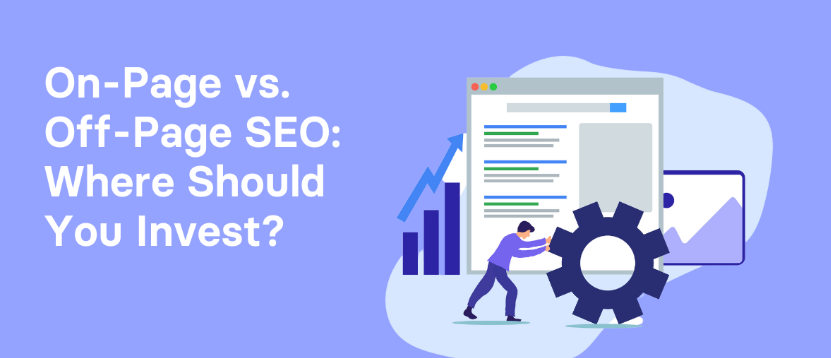When it comes to improving your website’s SEO, there’s no shortage of myths and misconceptions. Every year, new “SEO hacks” appear — and not all of them actually work.
While Google uses hundreds of ranking signals, not everything people talk about online affects your ranking. In fact, many popular SEO practices are either outdated, irrelevant, or completely false.
In this post, we’ll clear the confusion by explaining what’s not a Google ranking factor in 2025 — so you can focus on strategies that actually move the needle.
1. Social Media Likes and Shares
One of the biggest SEO myths is that social media engagement directly affects your rankings.
While platforms like Facebook, Instagram, and LinkedIn can help you increase visibility and drive traffic, Google has confirmed that social signals (likes, shares, followers) are not direct ranking factors.
That means having thousands of followers or viral posts won’t automatically boost your website’s Google ranking.
However, social media can indirectly help SEO by increasing brand awareness and generating backlinks — which are ranking factors.
2. Domain Age
Many people believe that older domains rank better because they’ve been around longer.
But according to Google’s John Mueller, domain age is not a ranking factor. A 10-year-old domain has no advantage over a brand-new one if both have similar content quality, backlinks, and authority.
What really matters is how trustworthy and valuable your content is — not how long your website has existed.
3. Keyword Density
In the early days of SEO, stuffing a page with the same keyword multiple times helped it rank higher. But those days are long gone.
Today, keyword density doesn’t matter as long as your content is natural, relevant, and provides real value.
Google’s AI-powered algorithm (like RankBrain and BERT) understands context, intent, and meaning, not just keywords.
✅ Instead of keyword stuffing, focus on:
- Using related terms (LSI keywords)
- Writing naturally for readers
- Structuring your content clearly with H2 and H3 headings
4. Meta Keywords Tag
Back in the 2000s, adding meta keywords in your HTML helped search engines understand your page’s topic. But now, Google completely ignores the meta keywords tag.
In fact, including it can even signal that your SEO strategy is outdated.
Focus on optimizing meta titles and descriptions instead — they influence click-through rate (CTR) and user engagement, which indirectly improve rankings.
5. Google Ads (Paid Advertising)
Running Google Ads does not directly affect organic rankings.
Some people assume that spending on ads can “buy” SEO benefits — but Google keeps its paid and organic algorithms completely separate.
However, PPC campaigns can help your SEO indirectly by:
- Driving more branded searches
- Increasing brand visibility
- Generating user behavior signals (visits, engagement)
So, while ads don’t boost rankings directly, they can complement your SEO strategy.
6. Having a .com Domain
There’s a myth that .com domains rank higher than others like .net, .org, or country-specific TLDs (.in, .uk, etc.).
The truth is — your domain extension has no effect on rankings.
Google treats all domain extensions equally, as long as they provide useful, trustworthy content. The only exception is country-specific TLDs, which can influence geo-targeting (e.g., .ca for Canada).
So, don’t stress about getting a .com domain for SEO reasons — choose one that fits your brand best.
7. Content Length Alone
While longer content often performs better, word count by itself is not a ranking factor.
Google doesn’t reward pages just for being long — it rewards pages that are comprehensive and satisfy user intent.
A 700-word post can outrank a 3000-word article if it answers the search query better.
✅ Focus on:
- Covering the topic thoroughly
- Maintaining readability
- Providing clear, actionable information
Quality > Quantity, every time.
8. Using Google Analytics or Search Console
Some believe that installing Google Analytics or Search Console gives your site an SEO advantage.
It doesn’t. Google doesn’t use Analytics or Search Console data to rank websites.
These are just tools for webmasters to monitor traffic and performance. You should definitely use them — but not because they boost rankings.
9. Website Traffic Volume
Many assume that more traffic = higher ranking.
While high-traffic sites often rank well, traffic itself isn’t a ranking factor. Instead, it’s usually the result of good SEO practices — not the cause.
Google doesn’t use your total traffic count in its ranking algorithm. However, engagement metrics like bounce rate and dwell time may help indirectly if they signal good user experience.
10. Domain Registration Length
You might have heard that registering your domain for 10 years shows “commitment” and improves SEO. That’s another myth.
Google’s Matt Cutts clarified that domain registration length is not a ranking signal.
You can renew your domain for one year or ten — it won’t impact how you rank. Focus instead on building trust signals like SSL certificates, reviews, and consistent branding.
11. Bounce Rate (Directly)
Although bounce rate is visible in Google Analytics, it’s not a direct ranking factor.
That’s because bounce rate can vary by page type. A visitor might leave quickly because they found exactly what they needed — not because the content was poor.
Google focuses more on search satisfaction — whether users got what they were looking for — rather than a single metric like bounce rate.
12. Using Certain CMS Platforms (WordPress, Shopify, Wix)
Whether you use WordPress, Shopify, Wix, or any other CMS — it doesn’t directly affect your ranking.
What matters is how well you optimize your site:
- Fast loading speed
- Proper meta tags
- Mobile responsiveness
- Clean URL structure
A poorly optimized WordPress site can rank worse than a well-optimized Wix site. So, platform choice alone isn’t a ranking factor.
Final Thoughts
Understanding what isn’t a Google ranking factor helps you avoid wasting time on outdated SEO tactics.
Instead of chasing myths, focus on real ranking factors — like high-quality content, backlinks, mobile optimization, and great user experience.
SEO success in 2025 isn’t about tricks or shortcuts. It’s about value, relevance, and trust. Master those, and your rankings will naturally follow.
Read more: Top 12 SEO Plugins for WordPress in 2025 (Boost Your Rankings Easily)





